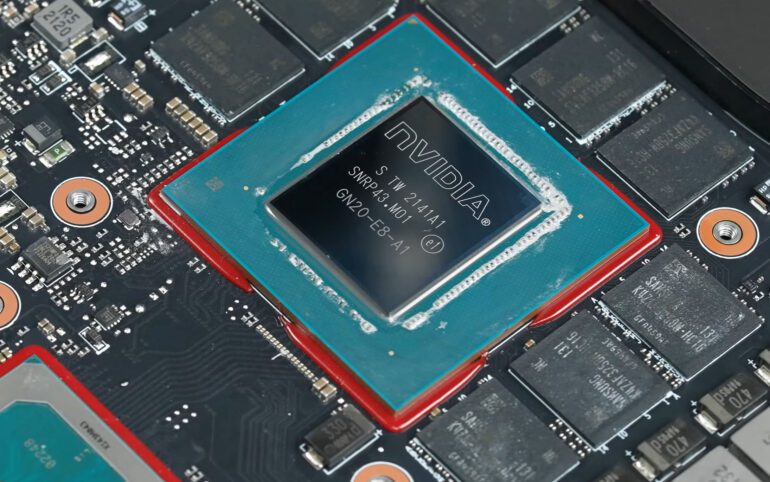TL;DR:
- Nvidia warns of a “permanent loss of opportunities” for the US industry if new export restrictions on AI chips to China are implemented.
- Chief Financial Officer Colette Kress anticipates future earnings impact but downplays immediate material impact.
- US officials plan to tighten export curbs to limit the sale of AI chips to China.
- Potential restrictions could make it harder for Nvidia to sell advanced chips to China, impacting its business and financial results.
- Biden administration’s chip curbs would be more effective than investment restrictions in limiting China’s AI-driven military power.
- China strongly criticizes US tech export restrictions and has implemented retaliatory measures against the US chip sector.
Main AI News:
In a recent announcement, Nvidia, a leading technology company, expressed concerns over potential new restrictions on the export of AI chips to China by the United States. Colette Kress, the company’s chief financial officer, emphasized that such limitations could lead to a “permanent loss of opportunities” for the US industry. While immediate impacts may not be imminent, tighter curbs could significantly affect future earnings.
Multiple media reports, including the Wall Street Journal and Financial Times, suggest that US officials are planning to enhance export controls initially announced in October. These measures aim to restrict the sale of specific artificial-intelligence chips to China, as part of broader efforts by Washington to limit the country’s access to critical technologies with military applications. However, the US Department of Commerce has not yet commented on these reports.
The potential rules could pose challenges for companies like Nvidia, making it more difficult for them to sell advanced chips to China. Nvidia, renowned for its AI chips, experienced a surge in demand that propelled its market capitalization to $1 trillion in late May. Colette Kress, while addressing an investment conference, acknowledged the reports regarding potential restrictions and highlighted the long-term ramifications. She stated that prohibiting the sale of their datacenter GPUs to China would not only impact future business and financial results but also hinder the US industry’s ability to compete and lead in one of the world’s largest markets.
Graphics processing units (GPUs) play a crucial role in rendering graphics for electronic devices. Although additional restrictions, if implemented, are not expected to have an immediate material impact on Nvidia’s financial results due to strong global demand, the long-term consequences remain a concern. Kress reiterated that the company is closely monitoring the situation and will respond accordingly.
Last year, the Biden administration introduced comprehensive export controls that prevent Chinese companies from purchasing advanced chips and chip-making equipment without a license. This latest move specifically targets Nvidia’s A800 chip, which the US-based company developed following the initial curbs to sustain sales in China. China represents a vital market for Nvidia, with mainland China and Hong Kong accounting for 22% of the company’s revenue in the previous year.
Following the announcement, Nvidia’s shares experienced a temporary slump of up to 3.2%, though they partially recovered, ultimately ending the day with a 1.8% decline. Chinese AI stocks, on the other hand, faced more substantial losses. Companies such as Inspur Electronic Information Industry and Chengdu Information Technology of the Chinese Academy of Sciences encountered significant drops in their stock values. Baidu, a company developing a rival to ChatGPT, also suffered a decline in its stock price.
Industry analysts have commented on the situation, emphasizing the potential impact of US restrictions on China’s AI advancements. They suggest that the Biden administration’s chip curbs could be more effective in limiting China’s military power growth driven by AI compared to investment restrictions in China’s tech sector. Local chipsets in China lack Nvidia’s GPU ecosystem, which means that every update would require extensive reworking, leading to decreased efficiency and higher costs.
China has consistently criticized US restrictions on technology exports, firmly opposing such measures. Earlier this year, in response to sanctions imposed by Washington and its allies on the country’s chip sector, Beijing banned Chinese operators of critical information infrastructure from purchasing products from Micron Technology.
The situation between the US and China regarding AI chip exports remains tense, and further developments will be closely monitored by industry observers and stakeholders. The long-term implications for both countries’ technology sectors are yet to be fully understood.
Conclusion:
Potential US restrictions on AI chip sales to China have raised concerns for Nvidia and the US industry, fearing a “permanent loss of opportunities.” The implications include a possible impact on future earnings, increased challenges in selling advanced chips to China, and the hindrance of the US industry’s ability to compete in one of the world’s largest markets. The situation may have broader market repercussions, affecting the technology sectors of both countries and potentially limiting China’s AI-driven military advancements.

